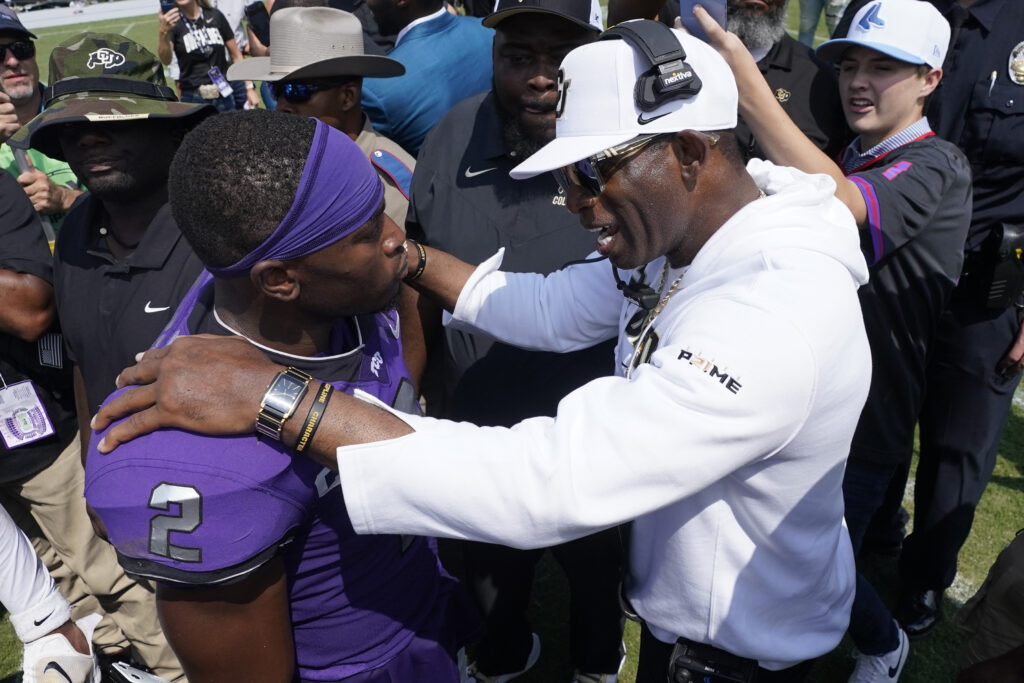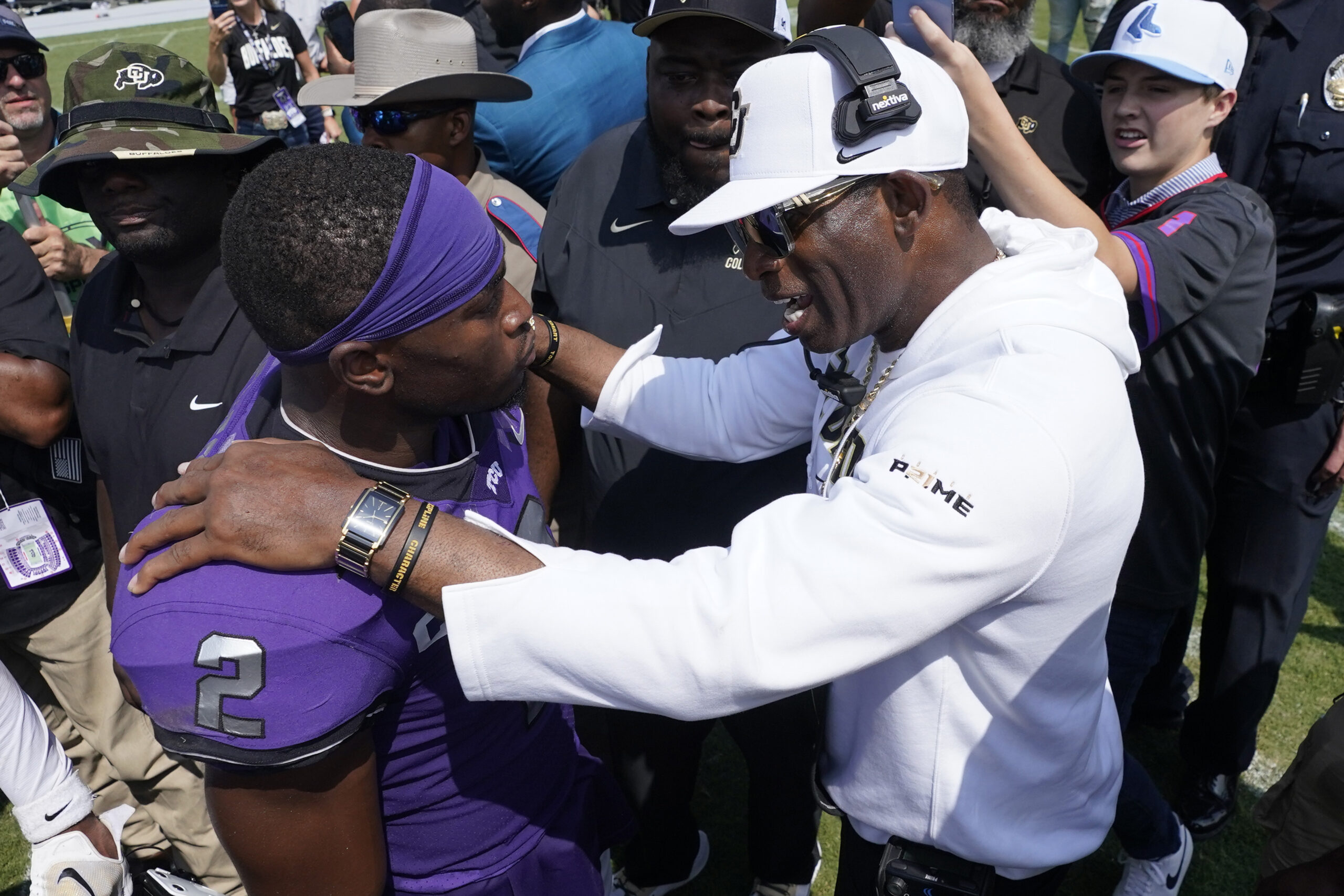When the University of Colorado Buffaloes, a team that won just one game in 2022, took the field against the 17th-ranked Horned Frogs of Texas Christian University last Saturday, none of the sports gambling books in Las Vegas gave the squad led by new head coach Deion Sanders a chance to win the game.
In fact, the Buffaloes were a minus-21-point underdog to the Horned Frogs, who beat the University of Michigan in the semi-final of the College Football Playoff and then lost to the University of Georgia in the National Championship. There was no way that a group of unproven players were going to win this game.

Colorado starting quarterback Shedeur Sanders, who played for his father at NCAA Division 1 Football Championship Subdivision and HBCU Jackson State, was supposedly not good enough to be a Power Five conference quarterback.
But last Saturday, Colorado proved all the experts that said they had no chance against TCU wrong. They came away with an improbable 45-42 upset in front of a sellout crowd in Fort Worth, Texas. Millions of shocked fans witnessed the Buffaloes’ unlikely performance.
As a head coach, Deion Sanders proved to the college football world that he was no loud-mouth gimmick as a coach. During his time at Jackson State, he was 27-6 (shhhh—it was a Black school and doesn’t supposedly count). Sanders can lead young men on the field at the highest level of college football. That’s something that Black American coaches rarely get the opportunity and institutional support to do.
There are only 14 Black American head coaches at the 133 schools that play in the NCAA Division 1 Football Bowl Subdivision, according to the Associated Press. This amounts to just 10.5 percent, a number made even more dramatic when you consider that more than half the players are Black.
And Sanders, who is in both the College and Pro Football Halls of Fame, wasn’t shy about letting everybody know about his abilities as a coach and the significance for Black coaches.
“We’re going to be continuously questioned because we do things that have never been done and that makes people uncomfortable,” Sanders said in his post-game press conference last week. “When you see a confident Black man, sitting up here talking his talk, coaching 75 percent African Americans in the locker room, that’s kind of threatening. Oh, they don’t like that. But
guess what – we’re going to consistently do what we do because I’m here and not going away.”
This was a coach who cleaned house and brought back just 10 scholarship players from the team’s 1-11 season in 2022, took advantage of the transfer portal database that connects players with teams, and got 86 players to come
together as one to pull off a monumental upset.
And by the way, the kids Sanders brought with him from Jackson State weren’t half-bad either last weekend against TCU. Most notable was Sanders’s son, Shedeur, the Buffaloes’ starting quarterback, who completed 38 of 47 passes for a school-record 510 yards and four touchdown passes. That included what turned -0out to be the winning score on a pass to running back Dylan Edwards with 4:25 left.
When Shedeur was named the team’s starting quarter almost as soon as his father became the head coach, there were more than a few critics who said he couldn’t handle the stronger and faster level of Division 1 football.
Of course, that’s the age-old assumption that just because someone comes from a predominantly Black institution, he or she is not supposed to be good. After leading his team to the win over TCU, Shedeur Sanders said his preparation was the same as it was at Jackson State.
“It doesn’t feel like nothing to me because it’s the same recipe, same preparation, same things we’re doing over and over,” Shedeur Sanders said. “It’s just magnified now. It’s more cameras and stuff … The only difference now is media. The only difference between FCS and (FBS) is that the d-line gets off blocks faster if you scramble up.”
Then there’s two-way player Travis Hunter, who played both wide receiver and cornerback for the Buffaloes. Hunter caught 11 passes for 119 yards receiving and had a huge interception in the red zone when it looked as if TCU was going to score a touchdown.
“(Hunter) has been the same player as he was last year,” Shedeur Sanders said. “Everything we’ve done in the past we did the same thing. We’re just at a bigger level.”
The real meaning of Deion Sanders coaching tenure at Colorado will, of course, not only be measured by what Colorado does from this point and beyond the rest of the season.
If Sanders can transform a program like Colorado, that can win a national championship or at least contend for one on a regular basis, maybe it will mean opportunities for more Black head coaches to coach at high-profile college football programs, something that doesn’t happen too often.
Sanders’s cockiness and supreme belief in himself reminds me of the way the late John Thompson stormed on the college basketball scene during his time at Georgetown back in the 1970s and 1980s.
The Hoyas, under Thompson, played an aggressive brand of basketball that won championships and often unnerved the mostly white college basketball establishment and the media.
If you thought Sanders got a little boisterous with the media after Saturday’s win over Colorado, Thompson was far more exacting of the local and national media
and didn’t care if we knew it.
By the way, Thompson’s success as a college basketball coach opened the door for Black college basketball coaches to the degree that the field is not as closed as college football. Here’s hoping that Sanders’ supreme belief in himself and his coaching abilities can open doors for Black coaches in college football.








